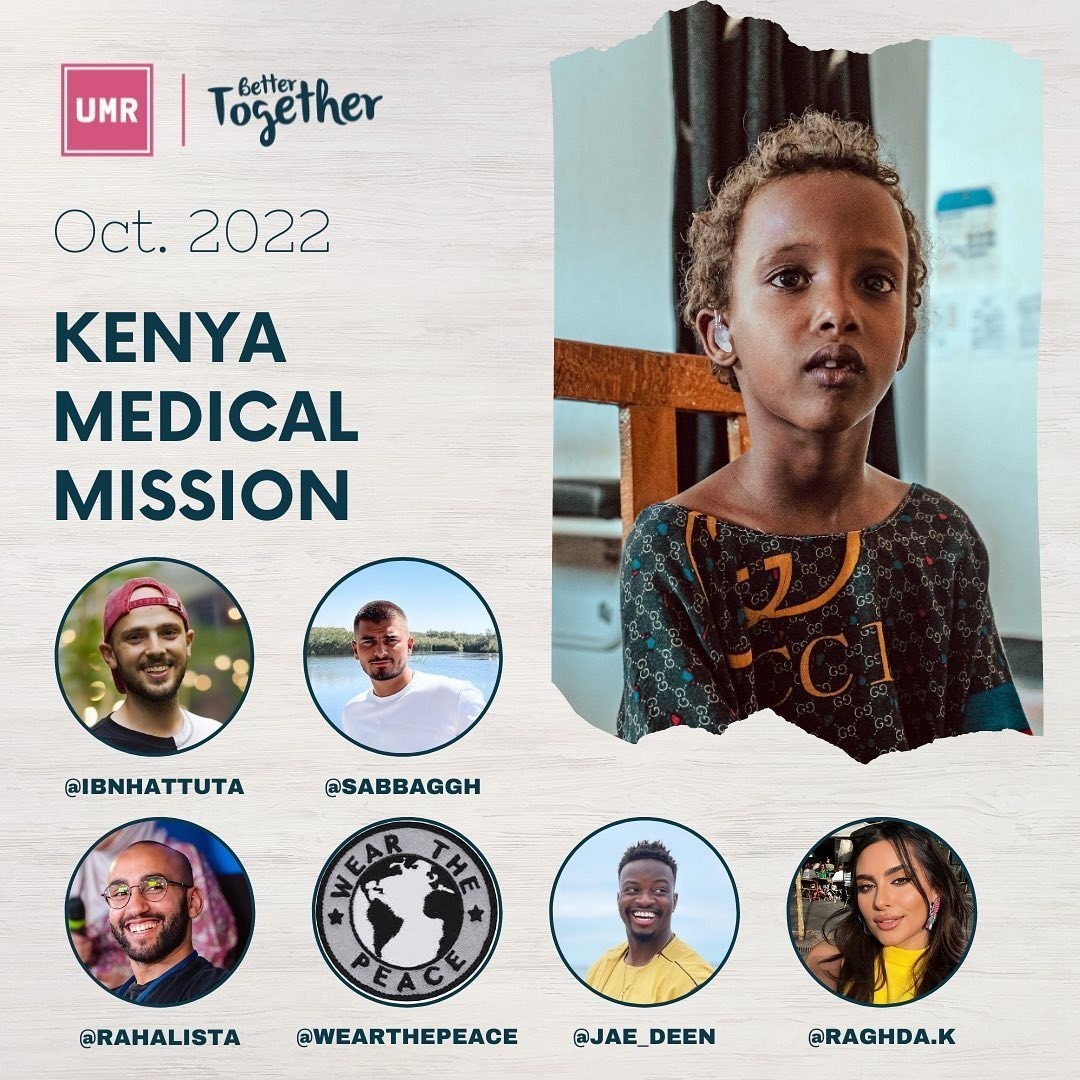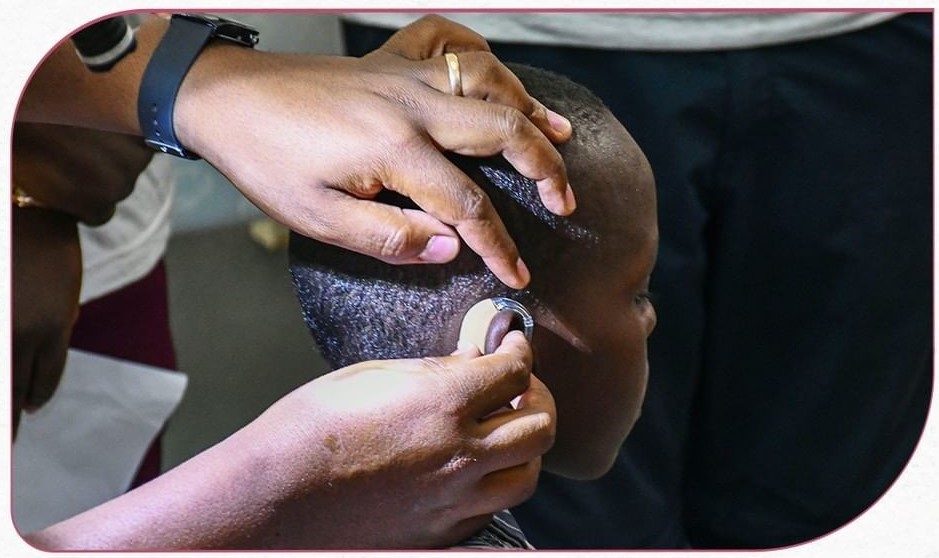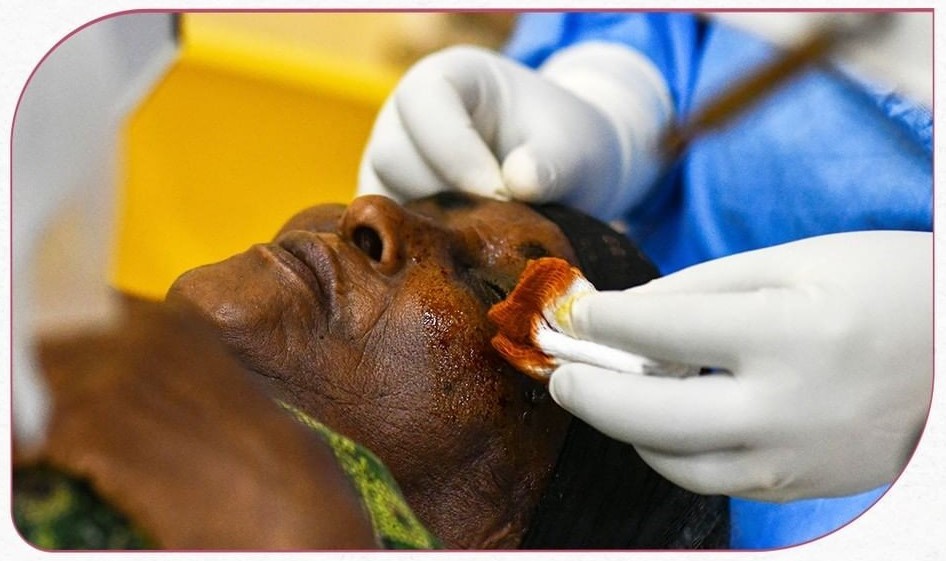Nestayha, a 7-year-old girl from Wajir,
Kenya lost her hearing after she became
sick and her eardrums ruptured.
اضافة اعلان
Jumana, a Somali woman living in Kenya, was
partially blinded due to a cataract (a cloudy eye lense) for more than 30
years.
How were the fates of these two intertwined? For
each patient, a small donation — as little as JD70 — enabled them to be cured.
Sight was restored to the older woman, and hearing to the little girl.
While JD70 may seem like a small barrier to a
life-changing operation, in Kenya it is the equivalent of a family’s income for
three months.

Thankfully for Nestayha and Jumana, a charity
fundraiser to aid Kenyans suffering from chronic hearing and sight loss
provided the funds for their operations, which were completed during a medical
mission to Wajir County from October 17-19.
The
United Mission for Relief and Development (UMR),
an organization committed to assisting marginalized and underserved communities
in building their capacity toward resilience, was the driving force behind the
annual fundraiser. During the mission led by UMR, cataract surgeries were
performed and hearing aids were distributed to underprivileged and vulnerable
populations, giving them the chance to lead healthy lives with their senses
restored.
For this year’s mission, UMR brought along
influencers from around the world — including a handful of content creators and
bloggers from Jordan and neighboring countries: Kasem Hato, known as Ibn
Hattuta, Mohammad Al-Sabbagh, Raghda Kyomejian, Mohammad Selini, Jae Deen, and
the brand Wear the Peace. During the mission, the influencers shared glimpses
from the mission on their social media profiles and encouraged people to donate
via a link.
“I went to Kenya with UMR last year, and I saw how
horrible the situation is in Wajir County with my own eyes,” said Ibn Hattuta
in an interview with
Jordan News. He explained that he saw people who have been
partially blind for years because they do not have 100 dollars to do the
cataract operation.

“So this year, once they decided to do another
campaign, I wanted to be part of it and do my best to help the people there,”
the influencer said. “I contacted a few friends of mine to join in the campaign
and help raise donations.”
For several years, UMR has chosen Wajir County for
its mission because “the need there is huge”, Ibn Hattuta added.
Hearing clearly, for the first time
Why is there such a high
rate of incidence of these conditions — more than 3,000 cases — in Wajir and
its surrounding counties? The weather, exposure to the intense brightness of
the sun, lack of proper nutrition, aging, and the fact that people cannot
afford surgery early on, according to Ibn Hattuta, are among the reasons for
the high number of vision and hearing problems.
‘Each has a role, one won’t succeed in helping people in need without the other, and we’re all obliged to give back’
Although these conditions may seem minor, those
suffering from a cataract not only lose their ability to see the world and
their loved ones clearly — it also affects their ability to perform daily
tasks, which leads to poverty,
unemployment, and lack of access to food.
Additionally, vision impairment may result in isolation and a continual
deterioration of mental health. Children who suffer from impairments such as
hearing loss also miss out on countless opportunities, such as education and
forming deep, meaningful relationships with peers.
The mission’s surgeons, mostly locals, work as
volunteers, while UMR’s fundraiser pays to bring in surgical equipment that is
not available in Wajir, as well as aftercare medicines and hearing aids.
“The highlights of the mission were the moments when
the doctors installed and turned on the hearing aids for the children, the
moment when we saw their reactions to hearing clearly for the first time in
their lives,” reflected Ibn Hattuta.
“The happiness that people had when the doctors took
off the bandage after a cataract surgery… The feeling is overwhelming and
reminds me of the reason I raise donations,” he said.
Social responsibility
This year, the influencers helped UMR to raise around $160,000 (JD113,440)
for both cataract surgeries and hearing aids for children.
“Almost 1,600 people directly benefited from the
surgeries and hearing aids, and many more indirectly, as it affects the whole
family when, for example, a father is partially blind since he needs to work to
provide for all of them,” he said.
Balancing relatability with fame, Ibn Hattuta and
the other content creators were eager to show the world in its complexity, and
to shine light on a crisis to which most people are oblivious.

“I believe this is part of the responsibility of
anyone who gets any kind of social influence — be it fame or important
connections — to use that power at least once in a while to contribute to a
good cause,” the influencer said.
He noted that several organizations exist that lay
the foundation to help people in need, but they need a boost from those with
social influence to advance their causes.
“Influencers and content creators mostly don’t have
the means of laying such foundations for helping people in need, so we need
those who lay them. That’s why it’s important to collaborate. Each has a role,
one won’t succeed in helping people in need without the other, and we’re all
obliged to give back,” he concluded.
Although the struggle for justice, equality, and
empowerment is far from over, and being healthy and safe is a privilege that millions of
people around the world do not enjoy, such fundraisers, medical missions, and
social media coverage highlight the importance of unity and global cooperation
in the pursuit of a better world.
Read more Features
Jordan News



